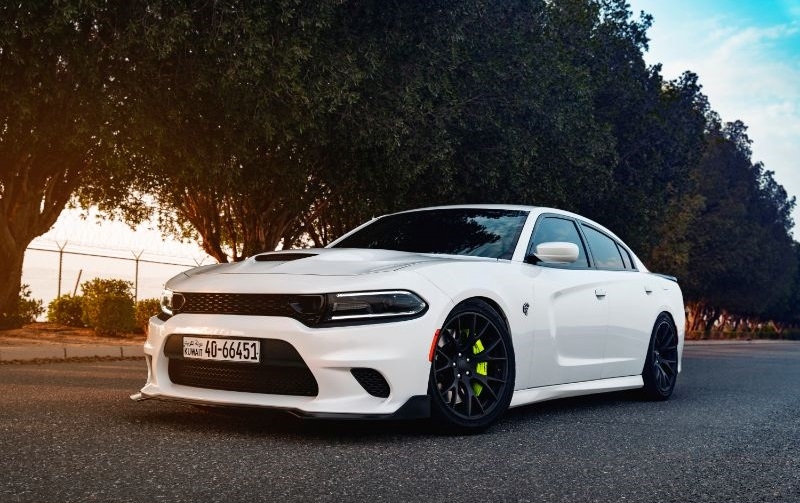Lotus Cars, a renowned British automotive brand, has left an indelible mark on the automotive industry with its commitment to innovation, precision engineering, and a relentless pursuit of perfection. From its humble beginnings to its current stature as a coveted luxury brand, Lotus Cars has a fascinating history that spans over seven decades. In this article, we will take a journey through time to explore the roots, milestones, innovations, and impact of Lotus Cars on the automotive world.
The Early Years of Lotus Cars
The story of Lotus Cars began in 1948, when a young and ambitious engineer named Colin Chapman founded the company. Chapman’s passion for motorsports and his innate talent for designing lightweight and agile cars set the foundation for Lotus Cars’ success. With a small team of dedicated individuals, Chapman started producing racing cars that quickly gained attention for their advanced engineering and exceptional performance.
Lotus Cars’ early years were marked by a series of groundbreaking innovations. One of the most significant contributions was the introduction of the monocoque chassis, a revolutionary design that combined the car’s body and frame into a single structure. This innovation not only reduced weight but also improved rigidity and safety, setting a new standard in the automotive industry.
Key Milestones in Lotus Cars’ History
As Lotus Cars grew in reputation, the brand achieved several key milestones that solidified its position as a leading manufacturer of high-performance sports cars. In 1957, Lotus Cars introduced the Lotus Seven, a lightweight and minimalist sports car that became an icon of the brand. The Lotus Seven’s simplicity and exhilarating driving experience captured the hearts of enthusiasts around the world.
In the 1960s, Lotus Cars made its mark on the international stage with the introduction of the Lotus Elan. The Elan’s groundbreaking design, featuring a fiberglass body, independent suspension, and exceptional handling, cemented Lotus Cars’ reputation for producing innovative and exhilarating sports cars. The Elan became an instant classic and set the stage for future successes in the automotive industry.
Notable Lotus Cars Models and Innovations
Throughout its history, Lotus Cars has introduced several notable models and innovations that have pushed the boundaries of automotive engineering. The Lotus Esprit, introduced in 1976, showcased the brand’s ability to blend performance and luxury seamlessly. With its striking design, mid-engine layout, and turbocharged power, the Esprit became an icon of the era and gained worldwide recognition, especially after its appearance in the James Bond film “The Spy Who Loved Me.”
Lotus Cars continued to innovate in the following decades, with models such as the Lotus Elise, Exige, and Evora. These cars exemplified Lotus’ commitment to lightweight construction, precision handling, and driver-focused experiences. The Elise, in particular, became a benchmark for sports cars, with its exceptional agility and purity of driving dynamics. Lotus Cars also pioneered the use of advanced composite materials, such as carbon fiber, to further reduce weight and increase performance.
Lotus Cars in Motorsports
Motorsports have always been at the heart of Lotus Cars’ DNA. From the early days of Formula 1 to endurance racing and rallying, Lotus Cars has enjoyed success on the track and rally stages around the world. The brand’s close ties with motorsports not only provided valuable testing grounds for their innovations but also helped elevate the brand’s image and reputation.
Lotus Cars’ most notable achievement in motorsports came in the 1960s with the Lotus Formula 1 team. Under the leadership of Colin Chapman, Lotus dominated the sport, winning numerous championships with legendary drivers such as Jim Clark and Ayrton Senna. The Lotus 25, Lotus 49, and Lotus 79 are just a few examples of the iconic Formula 1 cars that left an indelible mark on the sport.
Challenges and Triumphs: Lotus Cars in the Industry
Like any brand, Lotus Cars faced its share of challenges throughout its history. Financial difficulties, changing market trends, and increased competition posed significant hurdles for the brand. However, Lotus Cars’ ability to adapt, innovate, and stay true to its core principles allowed it to overcome these challenges and emerge stronger.
One of the defining moments in Lotus Cars’ history came in the 1990s with the launch of the Lotus Elise. The Elise was a critical success, receiving widespread acclaim for its exceptional driving dynamics and lightweight construction. The success of the Elise injected new life into the brand and solidified Lotus Cars’ position as a manufacturer of pure and uncompromising sports cars.
Lotus Cars’ Impact on the Automotive World
Lotus Cars’ impact on the automotive world cannot be overstated. The brand’s relentless pursuit of lightweight construction, aerodynamics, and precision engineering has influenced countless manufacturers and shaped the industry as a whole. The innovations pioneered by Lotus Cars, such as the monocoque chassis and advanced composite materials, have become commonplace in modern automotive design.
Furthermore, Lotus Cars’ success in motorsports has not only brought glory to the brand but has also inspired future generations of engineers and racing enthusiasts. The brand’s commitment to pushing the limits of performance and technology continues to resonate with automotive enthusiasts worldwide.
The Legacy of Lotus Cars
As we reflect on the remarkable history of Lotus Cars, it is evident that the brand’s legacy is firmly rooted in its relentless pursuit of excellence. From the early days of Colin Chapman’s visionary leadership to the present day, Lotus Cars has remained true to its core principles of lightweight construction, exceptional performance, and unrivaled driving experiences.
Lotus Cars’ influence can be seen in the success of other manufacturers who have adopted the brand’s engineering philosophies and design principles. The legacy of Lotus Cars will continue to inspire future generations of automotive enthusiasts and shape the future of the industry.
Exploring the Future of Lotus Cars
Looking ahead, Lotus Cars is poised for an exciting future. With the recent acquisition by Geely, a Chinese automotive conglomerate, Lotus Cars has access to new resources and opportunities for growth. The brand has already announced ambitious plans for expanding its product lineup, including the development of electric and hybrid sports cars that stay true to Lotus’ core principles.
Lotus Cars’ future success will depend on its ability to embrace new technologies while staying true to its heritage. As the automotive industry evolves, Lotus Cars has the opportunity to continue pushing the boundaries of performance, innovation, and sustainability.
Conclusion
From its humble beginnings to its current status as a revered automotive brand, Lotus Cars’ history is a testament to the power of innovation, passion, and dedication. Throughout the years, Lotus Cars has consistently pushed the boundaries of automotive engineering, leaving an indelible mark on the industry.
As we look back at the key milestones, notable models, and motorsport successes, it becomes clear that Lotus Cars’ impact on the automotive world is far-reaching. The brand’s legacy will continue to inspire and shape the future of the industry, ensuring that Lotus Cars remains a symbol of excellence, performance, and driving pleasure for generations to come.
CTA: “To experience the legacy of Lotus Cars firsthand, visit your nearest Lotus dealership and schedule a test drive today.”





